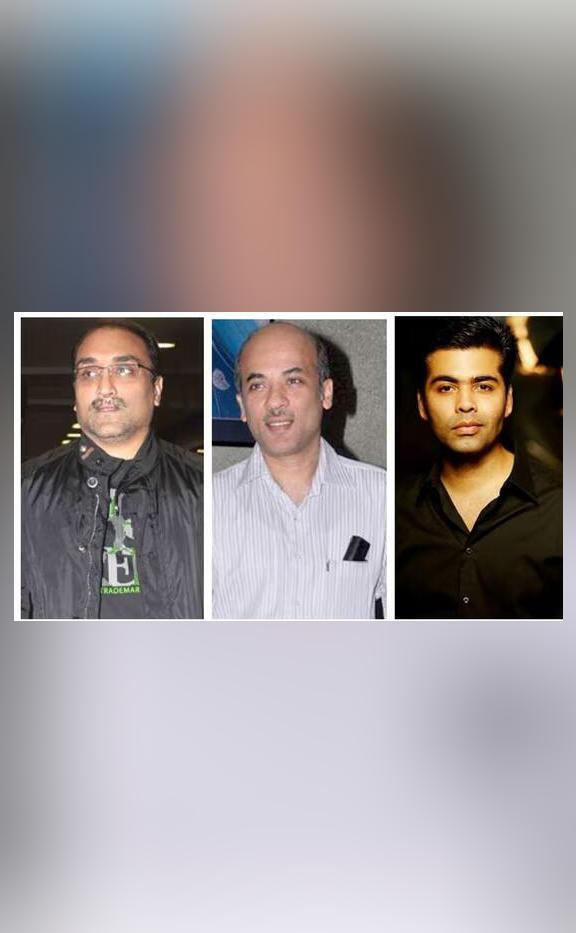
Karan, Aditya & I Born with Golden Spoons, Sell Fairytale: Sooraj
The Indian film industry, often referred to as Bollywood, has always been known for its grandiose productions, melodramatic storylines, and larger-than-life characters. However, behind the glamour and glitz, the industry is also home to a few privileged individuals who have had a silver spoon handed to them from the very beginning. Three such individuals are Karan Johar, Aditya Chopra, and Sooraj Barjatya, who were recently quoted as saying that they were born with golden spoons and have never experienced the hardships of life.
In a recent interview, Sooraj Barjatya, the renowned filmmaker behind hits like “Maine Pyar Kiya” and “Hum Aapke Hain Koun..!”, expressed his opinion on the matter. “We were born with golden spoons,” he said. “We have always travelled in cars. We showed the kind of world that was a fairytale, and the 90s were an era when the audience wanted to see fairytales.”
Barjatya’s statement is a stark reminder of the privilege that comes with being a part of the Indian film industry’s elite. With influential families and connections, these individuals have had access to resources and opportunities that most people can only dream of. For instance, Karan Johar’s father, Yash Johar, was a prominent producer and director who founded Dharma Productions, one of the most successful production houses in Bollywood. Similarly, Aditya Chopra is the son of the late Yash Chopra, another legendary filmmaker, and the brother of director and producer Uday Chopra.
Sooraj Barjatya’s own family has a rich history in the film industry. His father, OP Verma, was a producer and director who worked with legendary filmmakers like Raj Kapoor and Guru Dutt. Barjatya’s own directorial debut, “Maine Pyar Kiya”, was a massive hit in 1989 and established him as a prominent filmmaker in the industry.
The privilege that these individuals have enjoyed has undoubtedly played a significant role in shaping their careers and the kind of films they have made. Barjatya’s statement about showing the audience a fairytale is particularly telling. The 1990s were indeed an era of high-consumption, lavish productions, and over-the-top drama, with films like “Hum Aapke Hain Koun..!” and “Dilwale Dulhania Le Jayenge” showcasing the glamorous and aspirational lives of the rich and famous.
These films were not just entertainment for the masses but also served as a reflection of the changing times. The 1990s saw a surge in India’s economic growth, and with it, a growing middle class with disposable income and a desire for luxury and entertainment. Filmmakers like Sooraj Barjatya, Karan Johar, and Aditya Chopra capitalized on this trend, creating films that catered to the aspirational values of the audience.
However, Barjatya’s statement has also been met with criticism from those who feel that his comments are dismissive of the struggles and hardships faced by others. “It’s easy to say that you were born with a golden spoon when you come from a family of privilege,” said a young filmmaker who wished to remain anonymous. “But what about those of us who have had to fight tooth and nail to make it in this industry? Do we not deserve to have our stories told too?”
The debate surrounding Barjatya’s comments highlights the complex and often contradictory nature of the Indian film industry. On one hand, the industry is home to some of the most talented and hardworking individuals from all walks of life. On the other hand, it is also plagued by nepotism, privilege, and a lack of opportunities for those who do not have connections.
As the industry continues to evolve and change, it is crucial that we acknowledge and address these issues. By doing so, we can create a more inclusive and diverse industry that showcases the best of Indian talent, regardless of their background or connections.
In conclusion, Sooraj Barjatya’s statement about being born with a golden spoon is a reminder of the privilege that comes with being part of the Indian film industry’s elite. While it is undeniable that these individuals have had access to resources and opportunities that most people can only dream of, it is also important to acknowledge the struggles and hardships faced by others. As the industry moves forward, it is crucial that we work towards creating a more inclusive and diverse platform that celebrates the best of Indian talent, regardless of their background or connections.






